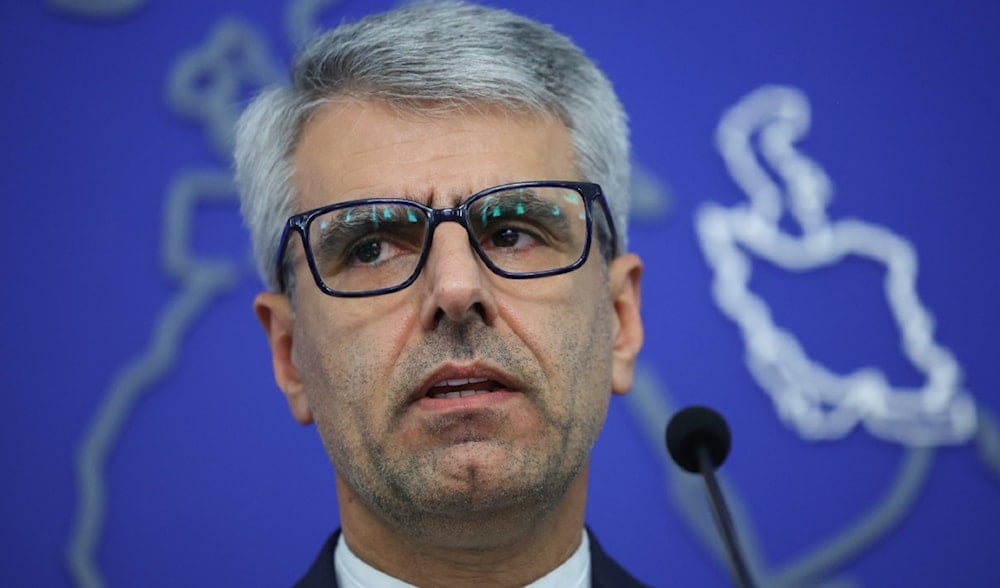Baghaei: Europe backed 'Israel’s' strikes on Iranian nuclear sites
Iranian official Esmail Baghaei accused European nations of aiding “Israel’s” attacks on nuclear facilities and warned of growing mistrust with the IAEA amid talks of possible NPT withdrawal.
-

Iranian Foreign Ministry Spokesman Esmaeil Baghaei (Iran's Foreign Ministry on X)
Tehran has sharply criticized the International Atomic Energy Agency (IAEA) for what it describes as increasing politicization and compromising of sensitive data.
Iranian Foreign Ministry spokesperson Esmail Baghaei, in an interview with The Guardian, said that confidential details about Iran’s nuclear sites had been passed on to “Israel,” raising alarm over the agency's credibility and impartiality.
Baghaei emphasized that this issue has exacerbated longstanding tensions between Iran and the IAEA, accusing the agency of being exploited by Western powers to advance their own agendas. “The main concern is the IAEA giving information about our nuclear sites to ‘Israel,’” he told The Guardian, adding that such actions have significantly damaged trust.
Parliament has the final say on NPT exit
Addressing Iran’s position within the Nuclear Non-Proliferation Treaty (NPT), Baghaei reiterated that any move to withdraw from the accord is solely within the authority of the Iranian parliament. “If parliament decides to leave the NPT, the government has no legal right to oppose it,” he noted, underscoring that the decision lies with lawmakers, not diplomats.
The possibility of withdrawal has been raised amid rising tensions with the West and ongoing pressure from the IAEA, which Tehran perceives as being influenced by geopolitical interests.
European complicity in 'Israel’s' nuclear strikes
Baghaei accused European governments of actively supporting “Israel’s” military actions against Iran’s nuclear infrastructure. He also noted that not only did European countries endorse the attacks, but they also provided intelligence that facilitated the bombings.
Citing June's Israeli strike on Iranian nuclear facilities, Baghaei linked it directly to a resolution passed by the IAEA’s Board of Governors, one he said was driven by US and European pressure using previous IAEA reports. “That resolution became the pretext for the strike,” he asserted to The Guradian.
The spokesperson noted that trust between Iran and the IAEA has long been strained, particularly following events where agency findings were allegedly used to justify hostile actions. He argued that the IAEA’s supposed neutrality has been undermined by its susceptibility to influence from Washington and Tel Aviv.
This mistrust, Baghaei warned, is deepening as the agency continues what Tehran views as a pattern of politicized conduct.
Tehran questions Europe’s global relevance
In a broader critique, Baghaei dismissed Europe’s influence on the world stage, stating that European powers have increasingly aligned themselves with Washington’s policies, particularly under the administration of US President Donald Trump.
“Europe followed Trump’s lead, and in doing so, revealed the decline of its own strategic independence,” he remarked to The Guardian. Tehran believes this alignment has rendered Europe a secondary player in international diplomacy, particularly on issues involving Iran.

 3 Min Read
3 Min Read








